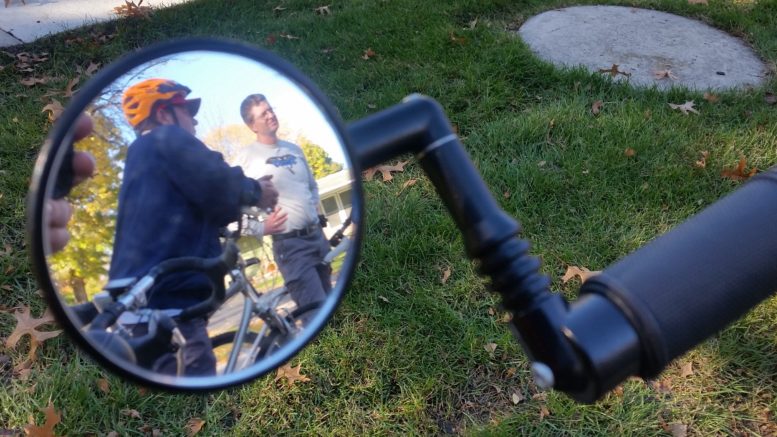By Susan Tebben
A bill to enhance consequences for distracted driving is moving along in a House committee, this time with an amendment exempting medical devices.
The bill’s main onus is to increase penalties for texting and driving in the state, and harmonize all municipal ordinances and individual rules about distracted driving into one main state law.
In a recent hearing of the House Transportation and Public Safety Committee, two women with specific experiences in losing family members from distracted driving urged passage of the bill.
Sharon Montgomery has been a part of the bill since its inception, and testified that those that believe changing the law isn’t the solution should research the impacts of distracted driving before making their decision.
“Research shows e-device use in any setting is at best a habit, at worst an actual addiction,” Montgomery told the committee. “If people can’t stop themselves, we must help them stop.”
In written testimony, bicycle safety advocates emphasized specific safety needs for those sharing the road with potential distracted drivers.
Patricia Kovacs, of the Ohio Bicycle Federation, said the number of distracted driving instances in the state is already too high, “but we should probably assume that many, many, more cases of distracted driving go undocumented.”
“Strengthening the consequences for driving while distracted is an important measure that Ohio can take to lower the number of distracted driving incidents and make our roads safer for all users,” Kovacs wrote in her testimony.
The National Transportation Safety Board (NTSB) supported the measure based on “lessons learned from numerous accident investigations” involving distracted drivers.
“Changing drivers’ behavior will undoubtedly require a cultural shift, and that shift will require a three-pronged approach including better laws, education, and enforcement,” the statement from the NTSB read.
That multi-pronged approach has changed the culture’s perception of seat belt use and drinking and driving in the past, the organization said. NTSB cited a 2013 poll by the AAA Foundation, in which two-thirds of drivers admitted to talking on a cell phone while driving within the last 30 days. In 2015, State Farm found that almost 30% of surveyed drivers said they’d accessed the internet while driving.
“We believe a significant number of lives can be saved and injuries avoided if Ohio expands and strengthens its law to prohibit all nonemergency use of all portable electronic devices,” NTSB wrote in the statement.
In sponsoring the bill, Rep. Mary Lightbody, D-Westerville, said she was motivated by the death of Montgomery’s husband, and a farmer who was killed on a tractor as another driver shopped on her cell phone.
In Tuesday’s committee, one amendment was added which would exempt from the distracted driving bill any messages received from a medical device like an insulin monitor.
The bill has a questionable likelihood of success if passed out of committee, with only Democratic cosponsors signed on to the bill, and a majority Republican House of Representatives.





